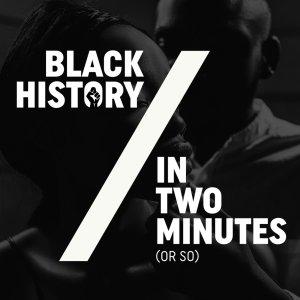Black History in Two Minutes (or so)

The Tuskegee Study
In 1932 the United States Public Health Service commissioned a study on the effects of untreated syphilis. 600 poor black men from Alabama were selected to be a part of the study and were told that they were being reviewed for “bad blood.” From there, the Tuskegee Study took a turn for the worst.
Medical professionals were able to successfully diagnose two-thirds of the men in the study, and by 1940, a known treatment was available. But, instead of offering treatment, medical professionals opted to chart the course of the disease versus offer the known cure to the black men. In would take over 40 years before this study officially ended, and even longer before an official apology came from the United States government.
In this episode of Black History in Two Minutes or So hosted by Henry Louis Gates Jr. — with additional commentary from Imani Perry of Princeton University and Hasan Jeffries of Ohio State University — we relive a horrific moment of unethical treatment and deceptive practices that still haunts African-Americans today.
Black History in Two Minutes (or so) is a 4x Webby Award winning series.
If you haven’t already, please review us on Apple Podcasts! It’s a helpful way to for new listeners to discover what we are doing here: Podcast.Apple.com/Black-History-in-Two-Minutes/
Archival Materials Courtesy of:
Alamy Images
Getty Images
Library of Congress
National Archives and Records Administration
Additional Archival by:
The New York Times
Executive Producers:
Robert F. Smith
Henry Louis Gates Jr.
Dyllan McGee
Deon Taylor
Produced by:
William Ventura
Romilla Karnick
Music By:
Oovra Music
Follow Black History in Two Minutes on Facebook
Follow Black History in Two Minutes on Instagram
Subscribe to Black History in Two Minutes Youtube Channel
‘Black History in Two Minutes’ is also available on Apple and Google podcasts.

Distributed by aone.la
Powered by hyperengine.ai






 Visit Podcast Website
Visit Podcast Website RSS Podcast Feed
RSS Podcast Feed Subscribe
Subscribe
 Add to MyCast
Add to MyCast